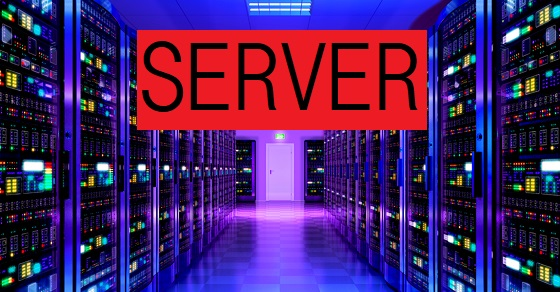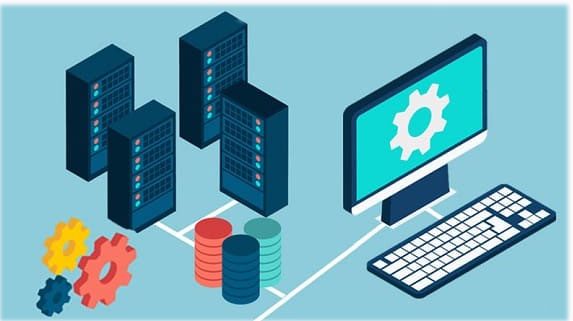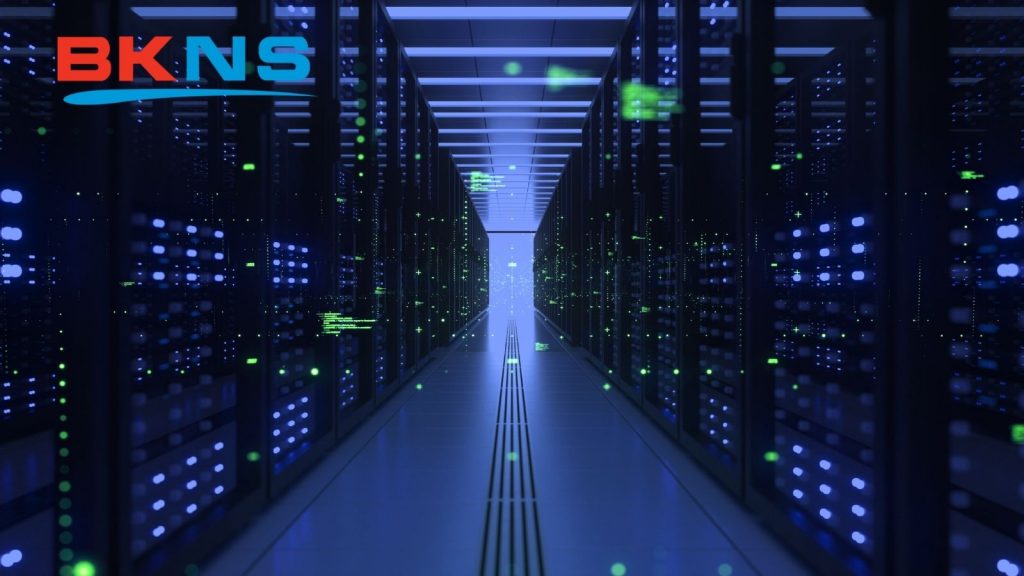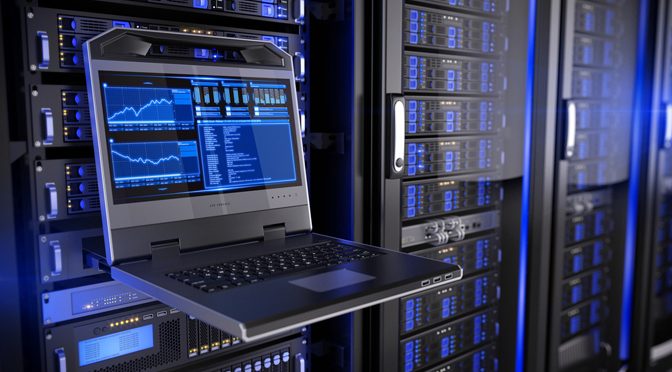What is Server? Server-related roles, categories and services
What is Server?

Server – a server, also known as a computer (hardware and software) that is connected to a computer network or to the internet. On the server install additional software or dedicated computers. Or many networked computers that have storage capacity to serve, provide services and resources for other computers to access.
You can understand that a server is a server with many outstanding features, storing and processing large data compared to normal computers. Has the feature of storing resources and providing information to serve the Client (user's machine) on the same computer network or the Internet.
The formation and development of the server

1.Formation
Server is a term derived from the “Queue” and “Black-box” algorithms.
Is an algorithm when input data will be processed and feedback results back to the user
The server is configured to suit the user's requirements, not merely an intermediary function between the two data ends.
2. The evolution of the server
The concept of "server" was born after the birth of supercomputers IBM 7030 Stretch. Contributing to today's supercomputer industry development
There are many different types of servers in the world today. Not only computer servers but also servers of telecommunications networks, television, traffic networks, etc.
3. Roles
Its main role is to store, provide and process data and then deliver it to workstations 24/7 for users or an organization via LAN or Internet.
For individuals and small businesses, the server also plays the main role of storing and operating the server system for data.
4. Operation Model
Servers typically operate in a Client-Server (client – server) model.
The client connects to the server through the network infrastructure using IP protocol (Internet Protocol), a server acts as a socket listener.
Server classification

1. Physical server (Dedicated Server)
A server running on hardware such as RAM, HDD, CPU, Network Card, etc.
It all depends on the hardware, when it's damaged or changes in server configuration and upgrades, it is necessary to change the server's hardware.
2. Virtual Server (VPS – Virtual Private Server)
VPS virtual server, divided into many other servers from the physical server. And it has the same features as the original physical server. Easy upgrade via system management software
3. Cloud Server (Cloud Server)
As a server built on a cloud computing platform, it is easy to upgrade each part without interrupting the use process.
And it is combined from many different physical servers with the same SAN (Storage Area Network) storage system with outstanding access speed to help the server operate stably.
Server-related services

1. Server Administration
- Operating system updates (Redhat, Ubuntu, Suse, CentOS, Linux, Windows); support installation, patching system and application programs or anti-virus; server cleaning.
- Support installation and configuration of common software supporting web and database; DNS server setting support
- Support backing up data on customer's hardware device.
- Consulting on fixing and patching customer's program code.
- Not responsible for problems caused by hardware or network connection outside the data center
- Not responsible for the content of customer data stored, or the server's activities that violate the laws of Vietnam.
- For config or reset support requests only support during office hours
2. Mail system administration
- Support to create accounts, delete emails, change passwords for up to 200 accounts.
- Configure and update anti-spam and anti-virus applications.
- Fix email server related errors.
- Not responsible for problems caused by hardware or network connection outside the data center.
- Not responsible for the content of customer data stored, or the server's activities that violate the laws of Vietnam.
- For requests to create email, modify account information, change password, config server is only supported during office hours.
3. Mail server settings
- Support to install Exchange Server or Mdeamon for up to 200 accounts.
- 1 month warranty with user manual.
4. Server Settings
- Update the latest patch and update.
- Remove unnecessary services and accounts.
- Web service settings:
+ Linux: Apache, PHP, MySQL, FTP, BIND, SMTP.
+ Window: IIS, MSSQL (2000; 2005); DNS; FTP; PHP, SMTP or Apache; PHP; MySQL, FTP, BIND, SMTP.
5. Install the security mechanism
- Decentralize permissions, set firewall for firewall on the server, install security support software.
6. On-demand support
- Identify security errors when hacked on the basis of logfile analysis of webserver, ftp, database.
- Support script and schedule data backup.
Notes to pay attention to when using server rental service

When using a server rental service, you need to pay attention to the bandwidth of the internet connection
The speed of using the Internet will be one of the factors that determine a computer's ability to exchange data. Therefore, you need to pay attention to the real speed of the Internet, especially the speed when shared with another host. You can find out information about the server's bandwidth on Google or ask for details about service providers.
2. Need to pay attention to the capacity and speed when renting a Server
At peak times of the day or promotions, too many visitors will make the website "stagnant", even crashing your website in just a few minutes.
In this case, the possibility of users returning to your website is very low because they do not want to work and experience with a weak website system. Therefore, you need to ensure that the capacity and speed of the server you use is strong enough to meet the ability to access and manage.
3. Customer support capabilities
Any service provider must have specific support, and so should a server rental service. Look for places that are willing to provide warranty and maintenance services, and repair problems that occur on your website 24/7. BKNS always ready to do that, prestige builds brand. Quickly register with us to receive the earliest support!





Post a Comment
Post a Comment